UPSC में Essay Paper के लिए 30 Trending Topics 2025 – Complete Guide
UPSC Mains Examination का Essay Paper aspirants के लिए scoring और tricky दोनों माना जाता है। बहुत से candidates General Studies और Optional Subject पर ज्यादा ध्यान देते हैं, लेकिन Essay Paper उनकी रैंक और final selection में game-changer साबित होता है।
UPSC Essay Paper में आपको दो essays लिखने होते हैं, हर एक 125 अंकों का होता है और कुल 250 अंक होते हैं। सही preparation और effective writing skills से आप आसानी से 150+ score कर सकते हैं।
इस लेख में हम समझेंगे:
UPSC Essay Paper का pattern
Essay लिखने की Best Strategy
Important Skills to Master
2025 के लिए 30 Trending Essay Topics
Essay Writing के Best Examples और Tips
1. UPSC Essay Paper का Pattern
Duration: 3 घंटे
Total Marks: 250
No. of Essays: 2 (प्रत्येक 1000–1200 शब्दों का)
Choice: UPSC लगभग 8 topics देता है (दो Sections – A और B में बंटे होते हैं)।
हर Section में से आपको 1 essay चुनना होता है।
2. Essay लिखने की Best Strategy
(a) Introduction कैसे लिखें?
Powerful Quote, Fact, या Short Anecdote से शुरू करें।
Essay का theme clear करें।
(b) Body में क्या लिखें?
Multi-dimensional approach अपनाएँ (Political, Economic, Social, Technological, Ethical, Environmental, International)।
Balanced और Neutral opinion रखें।
Sub-headings और examples का प्रयोग करें।
(c) Conclusion कैसे लिखें?
Optimistic tone रखें।
Constitution, Sustainable Development, Gandhian Philosophy, या Global Peace जैसे Universal Values का जिक्र करें।
3. Essay Writing में Master करने योग्य Skills
Content Knowledge: Current Affairs + GS Preparation.
Structuring: Logical Flow (Intro → Body → Conclusion).
Language & Clarity: Simple, formal और error-free language.
Quotations: Gandhi, Ambedkar, Vivekananda, Lincoln जैसे Thinkers के विचारों का उपयोग।
Practice: हर हफ्ते कम से कम 1 Essay लिखें और evaluate करवाएँ।
4. UPSC Essay Paper के लिए 30 Trending Topics 2025
Section A – Social, Political, Economic Themes
Democracy in the Digital Age – Opportunities & Challenges
India@100: Vision for Amrit Kaal
Artificial Intelligence and Future of Human Jobs
Inclusive Development: Myth or Reality?
Women Empowerment in 21st Century India
Education Reform: NEP 2020 and Its Implementation Challenges
Cooperative Federalism – Strengthening India’s Unity
The Role of Civil Society in Nation-Building
Economic Growth vs Environmental Sustainability
Urbanisation in India – Boon or Bane?
Section B – Ethics, Philosophy, International Themes
Ethical Governance – A Key to India’s Growth
Gandhian Philosophy in Contemporary Times
Freedom of Expression vs Responsible Speech
Climate Change and India’s Responsibility
Human Values in an Era of Technological Advancement
India’s Role in Global South Leadership
Multilateralism vs Nationalism – The New World Order
Cybersecurity and Data Privacy – Ethical Concerns
Social Media – Shaping Democracy or Distorting It?
Artificial Intelligence and Human Ethics
Section C – Science, Technology, Security Themes
Space Exploration and India’s Future
Biotechnology – Opportunities and Ethical Dilemmas
Digital India – Bridging or Widening the Divide?
5G, 6G & Beyond – Impact on Global Power Dynamics
Nuclear Energy – A Clean Future or a Looming Threat?
Section D – Miscellaneous & Philosophical Themes
Happiness as a Measure of Progress
The Relevance of “Vasudhaiva Kutumbakam” in Today’s World
Youth Power: Catalyst for Social Change
Knowledge without Character is Dangerous
Balancing Tradition and Modernity in Indian Society
5. Essay Writing के लिए Practical Tips
Brainstorming (10 मिनट): Essay शुरू करने से पहले points list कर लें।
Mindmap Technique: Keywords और sub-points लिखकर structure तैयार करें।
Flow Maintain करें: हर paragraph अगले paragraph से logically जुड़ा होना चाहिए।
Examples का Use करें: Government Schemes, Constitutional Articles, International Reports।
Quotations याद रखें: Short और relevant quotes ही प्रयोग करें।
Word Limit का ध्यान रखें: 1000–1200 words।
6. Sample Introduction (Topic – "Artificial Intelligence and Human Ethics")
"Technology is a useful servant but a dangerous master." – Christian Lous Lange
आज की दुनिया में Artificial Intelligence (AI) इंसानी जीवन को सरल बनाने के साथ-साथ नए ethical challenges भी पैदा कर रही है। Jobs का displacement, privacy concerns और algorithmic biases ने ये सवाल खड़ा कर दिया है कि क्या AI इंसान के नियंत्रण में रहेगा या इंसान AI का गुलाम बन जाएगा।
7. Sample Conclusion (Topic – "Democracy in the Digital Age")
Digital Democracy ने citizen participation को बढ़ाया है, लेकिन साथ ही fake news, polarization और data misuse जैसे खतरे भी सामने आए हैं। भारत जैसे बड़े लोकतंत्र के लिए ज़रूरी है कि technology को Satyam, Shivam, Sundaram के सिद्धांतों के साथ जोड़कर एक inclusive, transparent और accountable democracy बनाई जाए।
8. Essay Practice Resources
Previous Year UPSC Essay Papers (2013–2024)
Yojana & Kurukshetra Magazines
The Hindu, Indian Express Editorials
ARC Reports, NITI Aayog Documents

Lakshya IAS
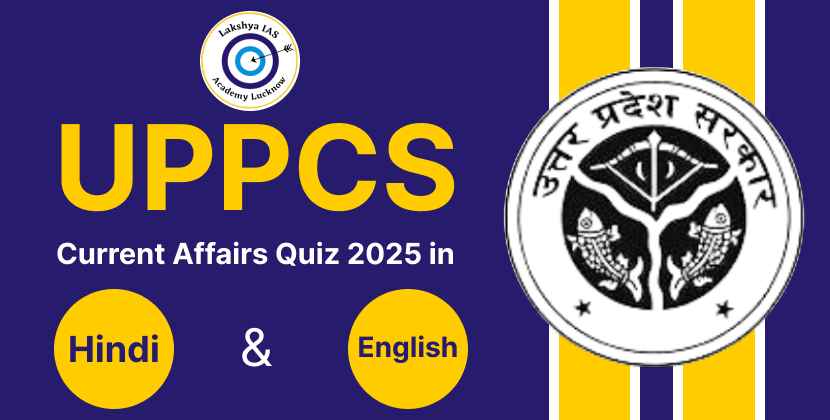

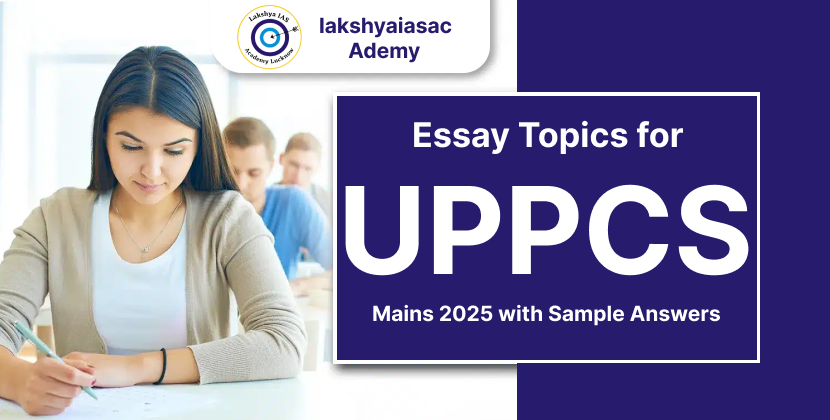
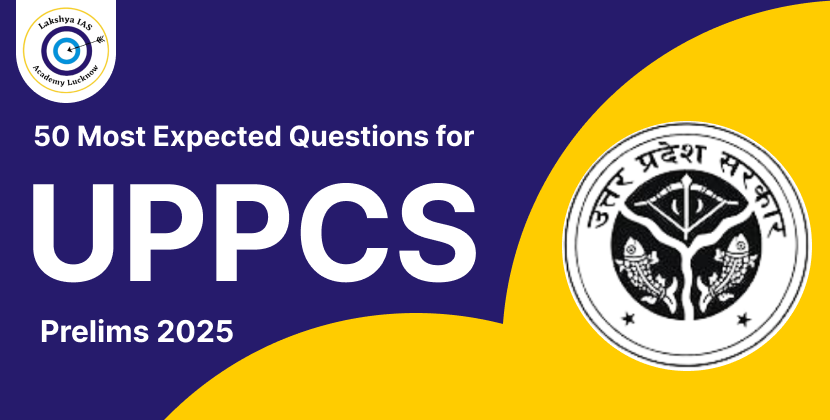
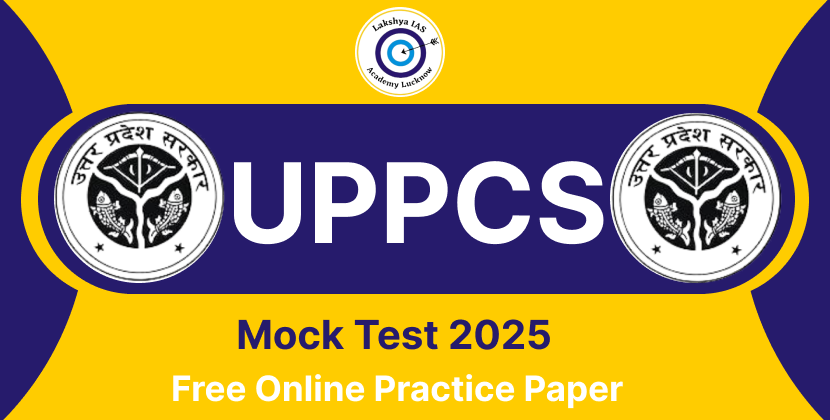
.png)
.png)

.png)
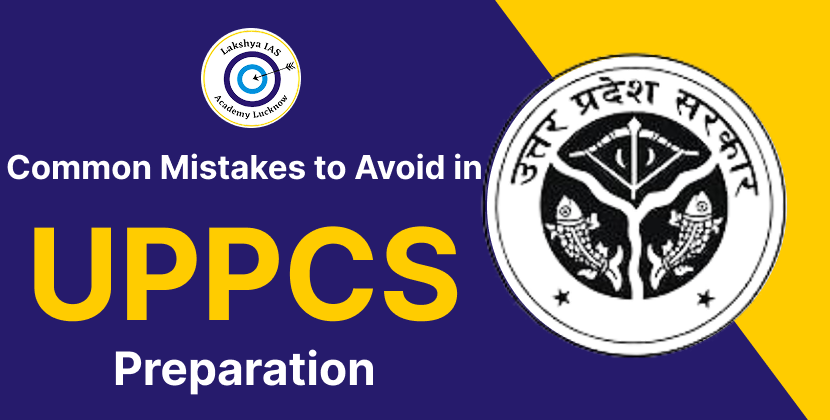
Leave a Comment